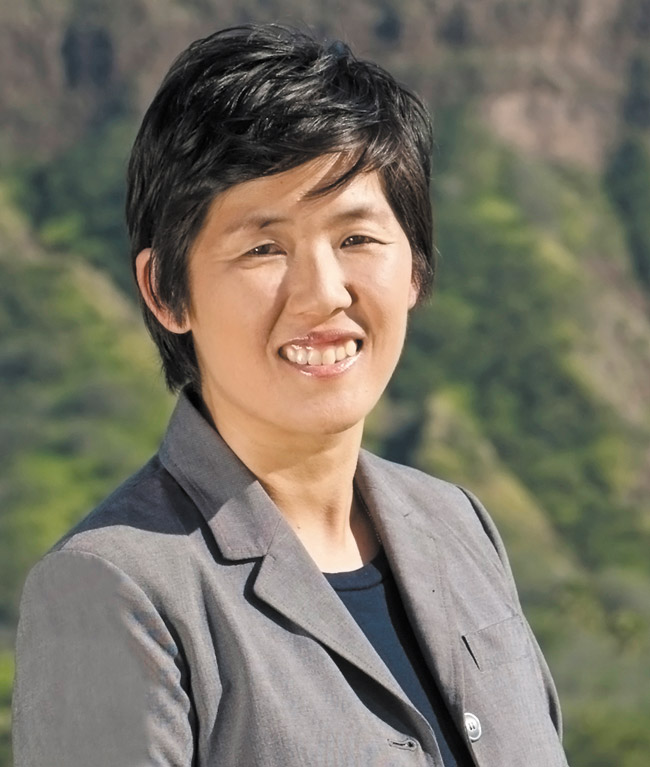Running As A Political ‘Alternative’
Kathryn Xian proclaims herself “the most progressive candidate” in the race for the 1st Congressional District seat being vacated by Colleen Hanabusa.
“I’m offering myself as an alternative to the typical politicians who’ve become detached from the people,” she says.
Her opponents in the Democratic primary include three city councilmen, two state senators and a state representative.
“I’m the only one who’s refused to accept corporate money,” Xian says. “My people are average Americans who’ve gotten the short end of the stick. We’re experiencing the worst income disparity in the United States since the 1920s. Someone needs to speak for the people.”
Every Hawaii politician has an origin story, as kids from Kalihi, a Maui girl or a Big Island boy. None, however, has worked better than descent from contract laborers in Hawaii’s sugar fields. Xian (pronounced Shi-an) has to go back four generations, but hers is as good as any and better than most.
Great-grandfather Won Kiu Ahn left Korea in 1903 to seek his fortune as a plantation laborer in Hawaii. He sailed not simply in the first year of the Korean diaspora, but on the first ship, the S.S. Gaelic.
“My grandfather was assigned to Ewa Plantation,” says Xian. “He saved his money, bought tobacco in bulk, put it in small packets, then sold it to his fellow laborers to make extra money.”
Eventually Grandpa Ahn saved enough to buy land and set himself up as a tailor. He prospered, becoming a successful businessman and supporter of Korean liberation from Imperial Japan.
And he married well. “She was educated,” Xian says. “Family lore has it that her parents didn’t want her feet bound, so they sent her to school. Korean girls couldn’t go to school, so her parents dressed her as a boy and she was able to attend until she was 14 years old.”
Candidate Xian, 41, grew up in Manoa Valley and on the beach at Pupukea. She attended Noelani Elementary School and Mid-Pacific Institute. She never graduated.
“I was bullied for being gay,” explains Xian, “and I dropped out.”
She received her GED, then entered Bard College in New York. Xian ultimately completed an online bachelor’s degree in Justice Studies from Arizona State University.
Xian cites the bullying as formative in making her an advocate for social justice: “There are too many people discriminated against in this country, and I know what it is to face discrimination.”
She launched herself professionally as a documentary filmmaker, but found herself wanting to be more involved in justice issues, first by founding Girl Fest Hawaii, aimed at “preventing violence against women and girls through education and art,” and then with the Pacific Alliance to Stop Slavery to end human trafficking.
“Women caught in prostitution have gone through hellish conditions,” says Xian. “The Pacific Alliance provides women who want to escape it with housing assistance and legal referrals. We’ve lobbied to get 10 laws passed against it in the Legislature. Most recently, we drew national attention to the waiver that allowed police to have sex with a prostitute as part of their job.”
Xian feels candidates have “to challenge what the voters want to hear” rather than treat politics as a “horse race in which you buy your favorite horse. Democratic politics should not be a buyout.”
dbboylan@yahoo.com






